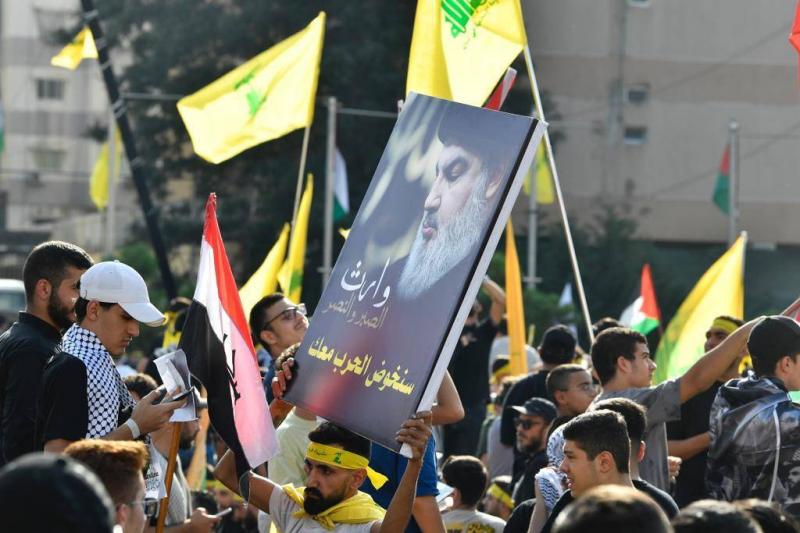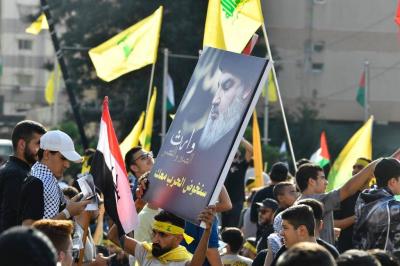Hezbollah, as an organization, and Sayyed Hassan Nasrallah as a leader, lost a significant amount of credibility, seriousness, and the ability to stir enthusiasm in his audience with his speech yesterday. This came after nearly a month of strategic silence, calculated fear, programmed absence, and the pre-speech propaganda leading up to his awaited television address. This prepared speech, crafted by a political and ideological academic team, did not rise to the occasion and lacked the expected positions and decisions that many citizens were anticipating. Therefore, the speech was indeed disappointing.
Everyone awaited a statement that would leave a profound impact or slightly alter the course of security events and military operations, leading to political engagement aimed at exiting the cycle of armed conflict towards a political solution that would reduce bloodshed and halt the killing machine ravaging the bodies of the Palestinian people. However, Nasrallah, while clearly stating that his axis was unaware of the Al-Aqsa Flood operation, which was executed with absolute secrecy even from allies, focused on two essential points that must be achieved in the upcoming stage. These points would also help distance him from engaging in the ongoing battle in Gaza and the West Bank:
- Working towards stopping the war in Gaza, considering its cessation a victory for the Palestinian people.
- Striving for the victory of Hamas and ensuring its defeat is not allowed.
However, these goals cannot be achieved without participation in the war to alleviate pressure on the fronts in Gaza and the West Bank, as well as to compel the Israeli entity to accept a ceasefire, allow aid to enter, lift the siege, and initiate negotiations towards a two-state solution. Nasrallah also indicated that the limited military operations he is conducting are part of a policy to deter Israel only, and not a threat of opening a large-scale military front against it. At the same time, he warned Israel against committing folly—implying the potential for waging war on Lebanon.
He considered Hezbollah's casualties since the onset of the Al-Aqsa Flood operation to be the price of deterring Israel and warning it against aggression towards Lebanon. Simultaneously, he viewed these sacrifices as a message of solidarity with Palestine and Gaza and a contribution to alleviating pressure on them as well. In clarifying the situation of the Lebanese front, he confirmed receiving warning messages from various countries, cautioning against entering or getting involved in the war occurring on the southern front with Gaza. Nevertheless, Nasrallah stated that Hezbollah is not deterred by these warnings and continues its role by targeting Israeli positions in a limited manner and allowing Palestinian groups to operate along the Lebanese border with occupied Palestine.
He pointed out that the continuation of these operations along the border is governed by two paths: the course and development of events in Gaza, and the behavior of Israel along the Lebanese border. This means a return to attacking civilians if Lebanese civilians are targeted. He kept all possibilities open along the Lebanese front, but after this explanation and declaration of positions, it seems Hezbollah is not on a path towards wide-scale military action. Instead, as he indicated, it fears an Israeli military move against Lebanon under any pretext, especially in light of the significant Western military presence in the region. He elaborated on rejecting American warnings, even raising the level of threat to the American fleet, reminding them of the explosion at the Marines' headquarters in Beirut in 1983, asserting that the executor of that operation is still alive.
Nasrallah summarized the nature of the ongoing battle by stating that it is a battle of resilience, patience, and enduring sacrifices, with the primary goal being to halt the aggression against Gaza, not to militarily intervene to stop the aggression against Gaza and Palestine. He also confirmed that the role of the Iraqi Popular Mobilization Forces and Ansar Allah in Yemen would not exceed that of Hezbollah along the Lebanese borders, which is to engage in skirmishes to affirm presence and participation, and not to change the equation or seriously engage in the ongoing war. This signifies that the theory of the unity of battlefields has ended with the Gaza conflict, and Iran aims to protect its tools in Lebanon as well as elsewhere. Therefore, it can be said that this speech was disappointing to its supporters and to anyone hoping for Hezbollah's involvement in alleviating pressure on Gaza and its people. Hezbollah has lost its presence, and Nasrallah has lost his credibility.




